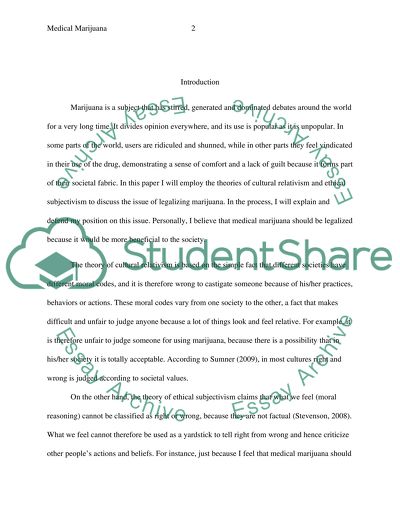Legalizing Medical Marijuana Will Have More Benefits to Society than Essay. Retrieved from https://studentshare.org/philosophy/1445775-prostitution-is-immoral-regardless-of-the-society
Legalizing Medical Marijuana Will Have More Benefits to Society Than Essay. https://studentshare.org/philosophy/1445775-prostitution-is-immoral-regardless-of-the-society.


